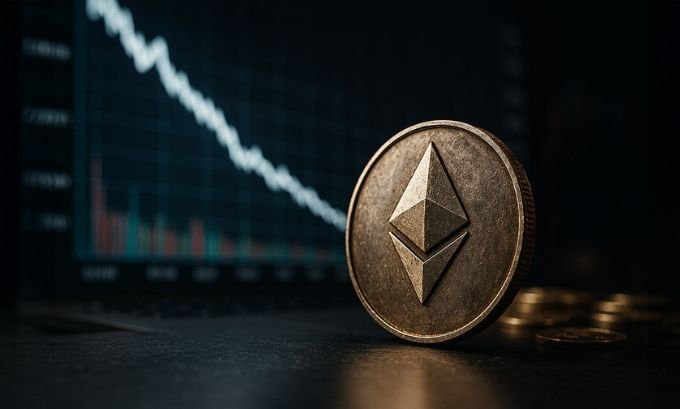Thinking about investing in cryptocurrency? You’re not alone. The world of digital assets can seem complex, but this beginner’s guide to cryptocurrency investing is designed to give you a clear roadmap. We’ll explore what cryptocurrency is, how it works, and the steps you can take to start your investment journey with confidence.
Investing in cryptocurrency involves buying digital assets like Bitcoin or Ethereum with the hope that their value will increase over time. It all starts with understanding the core technology, choosing the right assets for your goals, and securing them properly.
Table of Content
Understanding Cryptocurrency: More Than Just Digital Money
At its core, a cryptocurrency is a digital or virtual token that uses cryptography for security. Unlike traditional money issued by governments, most cryptocurrencies are decentralized. This means they are not controlled by any single entity, like a bank or government.
This decentralization is made possible by Blockchain Technology. Think of a blockchain as a digital ledger or a public record book. Every transaction is recorded as a “block” and added to a “chain” of previous transactions. This chain is distributed across a network of thousands of computers, making it incredibly difficult to alter or tamper with. This security and transparency are what make the technology so powerful.
How Does It Work?
When you send or receive cryptocurrency, the transaction is broadcast to the network. Computers on the network, often called “miners” or “validators,” work to confirm that the transaction is legitimate. Once verified, the transaction is bundled into a new block and added to the blockchain, creating a permanent and unchangeable record. This process is the foundation of trust in the system.
A Personal Journey into Crypto Investing
When I first started, the idea of a “beginner’s guide to cryptocurrency investing” was exactly what I needed. My journey began in 2020 after hearing friends talk about the incredible returns from Bitcoin (BTC). The concept of “digital gold” was compelling—a scarce asset that couldn’t be inflated by a central bank.
My first step was education. I spent weeks reading articles and watching videos. A particularly helpful resource was the University of Michigan – Blockchain and Cryptocurrency Explained course available online. It broke down complex topics like cryptography and consensus mechanisms into digestible lessons. It helped me move past the hype and understand the fundamentals of Blockchain Technology.
My first purchase was a small amount of Bitcoin (BTC) and Ethereum (ETH) through a popular exchange. The process was surprisingly simple: create an account, link a payment method, and buy. But the learning didn’t stop there. I quickly realized the importance of security and moved my assets from the exchange to a personal crypto wallet. This gave me full control over my digital funds, a core principle of decentralization.
As I grew more confident, I started researching other projects, known as altcoins. Using platforms like CoinMarketCap and CoinGecko, I explored different categories, from Decentralized Finance (DeFi) protocols to gaming tokens. This research taught me to look beyond the price and analyze a project’s use case, team, and tokenomics. It’s a continuous learning process, but starting with a solid educational foundation made all the difference.
What I Like About Crypto Investing
- Accessibility: Anyone with an internet connection can participate. You don’t need a bank account or permission from a financial institution.
- True Ownership: When you hold crypto in your own crypto wallet, you have complete control over your assets. No one can freeze or seize them without your private keys.
- Innovation: The space is constantly evolving with new technologies like Decentralized Finance (DeFi), which aims to rebuild traditional finance on the blockchain.
- Transparency: All transactions are recorded on a public blockchain, offering a level of transparency that traditional financial systems often lack.
Areas for Improvement and Caution
- Volatility: Prices can swing dramatically in short periods. It’s crucial to only invest what you can afford to lose.
- Complexity: Understanding the technology behind different projects requires time and research. It’s easy to get lost in technical jargon.
- Security Risks: While the blockchain itself is secure, users are responsible for protecting their own assets. Scams and hacks are common, making self-custody and security practices essential.
- Regulatory Uncertainty: Governments around the world are still figuring out how to regulate cryptocurrencies. Future laws could significantly impact the market.
The Pillars of the Crypto World: Bitcoin and Ethereum
While thousands of cryptocurrencies exist, two stand out as the pillars of the market. Understanding their differences is a key part of any beginner’s guide to cryptocurrency investing.
Bitcoin (BTC): The Original Digital Gold
Bitcoin (BTC) was the very first cryptocurrency, created in 2009 by an anonymous person or group known as Satoshi Nakamoto. Its primary purpose was to be a peer-to-peer electronic cash system, allowing online payments to be sent directly from one party to another without going through a financial institution.
Today, Bitcoin is more widely seen as a store of value, similar to digital gold. Its supply is capped at 21 million coins, making it a deflationary asset. This scarcity is a key part of its investment appeal. The network is secured by a process called cryptocurrency mining, where powerful computers solve complex mathematical problems to validate transactions and earn new BTC as a reward. This process, known as Proof-of-Work, requires significant energy but creates an incredibly secure network.
Ethereum (ETH): The World Computer

Launched in 2015, Ethereum (ETH) took the concept of blockchain a step further. While Bitcoin is primarily a system for transferring value, Ethereum is a platform for building decentralized applications (dApps). It introduced the concept of “smart contracts”—self-executing contracts with the terms of the agreement directly written into code.
These smart contracts are the foundation of Decentralized Finance (DeFi), Non-Fungible Tokens (NFTs), and thousands of other applications. Instead of just a ledger for transactions, Ethereum acts as a global, decentralized computer. Its native currency, Ether (ETH), is used to pay for transaction fees on the network, a process known as “gas.”
Unlike Bitcoin, Ethereum recently transitioned from a Proof-of-Work system to Proof-of-Stake. This change dramatically reduced its energy consumption and allows ETH holders to “stake” their coins to help secure the network and earn rewards.
Beyond Bitcoin: Exploring Altcoins and DeFi
Any coin that isn’t Bitcoin is generally referred to as an altcoin. The altcoin market is vast and diverse, with projects focused on everything from payments and privacy to supply chain management and gaming.
What are Altcoins?

Altcoins can be anything from direct competitors to Bitcoin, offering faster transaction speeds or different features, to entirely new platforms like Ethereum. Some popular examples include:
- Cardano (ADA): A blockchain platform focused on sustainability, scalability, and security, using a research-driven approach to development.
- Solana (SOL): Known for its high transaction speeds and low fees, making it a popular choice for dApps and DeFi projects.
- XRP (XRP): A digital asset designed for fast and low-cost international payments, created by the company Ripple.
If you’re interested in exploring different perspectives on getting started with crypto, be sure to check out our guides on mindjournal.co, ponta.in and gogonihon.jp.net
The Rise of Decentralized Finance (DeFi)
Decentralized Finance (DeFi) is one of the most significant movements within the cryptocurrency space. It aims to create an open and global financial system that is built on public blockchains, primarily Ethereum (ETH). DeFi applications replicate traditional financial services like lending, borrowing, and trading, but without intermediaries like banks.
For example, on a DeFi lending platform, you can lend out your cryptocurrency and earn interest, or you can use your crypto as collateral to take out a loan. These transactions are handled automatically by smart contracts, reducing costs and increasing efficiency. DeFi represents a major use case for blockchain technology and is a key area of interest for many investors.
How to Start Investing: A Step-by-Step Guide
Ready to make your first investment? This beginner’s guide to cryptocurrency investing breaks it down into simple, manageable steps.

- Choose a Cryptocurrency Exchange: An exchange is a platform where you can buy, sell, and trade cryptocurrencies. For beginners, it’s best to start with a well-known, reputable exchange like Coinbase, Kraken, or Gemini. These platforms offer user-friendly interfaces and strong security features.
- Create and Fund Your Account: Signing up is similar to opening a brokerage account. You’ll need to provide personal information and verify your identity. Once your account is approved, you can fund it using a bank transfer, debit card, or wire transfer.
- Research and Choose Your First Crypto: Don’t just buy what’s popular. Use resources like CoinMarketCap and CoinGecko to research different projects. Look at the market cap, circulating supply, and the project’s whitepaper to understand its goals and technology. For most beginners, starting with Bitcoin (BTC) and Ethereum (ETH) is a sensible approach due to their established track records and large market caps.
- Make Your Purchase: Once you’ve decided, enter the ticker symbol (e.g., BTC for Bitcoin) and the amount you want to invest. You can buy a full coin or a fraction of one.
- Secure Your Assets in a Crypto Wallet: This is a critical step. While leaving your crypto on an exchange is convenient, it’s not the most secure option. Transferring your assets to a personal crypto wallet gives you full control.
Choosing a Crypto Wallet: A Comparison
Crypto wallets are tools that allow you to store and manage your cryptocurrency. They come in two main forms: hot wallets and cold wallets.
| Wallet Type | Description | Pros | Cons |
|---|---|---|---|
| Hot Wallet | Software wallets connected to the internet (e.g., mobile apps, browser extensions). | Convenient for frequent transactions, easy to set up, often free. | Less secure, vulnerable to online threats like hacking and malware. |
| Cold Wallet | Hardware wallets that are kept offline (e.g., USB-like devices from Ledger or Trezor). | Highest level of security, immune to online attacks. | Less convenient for quick access, requires a physical purchase. |
For long-term investors, using a cold wallet is the industry standard for securing the majority of your assets. Hot wallets are useful for small amounts you plan to use for trading or transactions.
For useful tools and services beyond the crypto world, explore TokyoMart.store, an e-commerce store for the latest gadgets, and LinkLuminous.com, a digital agency offering smart solutions for your online growth.
FAQ: Answering Your Top Crypto Questions
1. Is cryptocurrency a good investment for beginners?
Cryptocurrency can be a high-risk, high-reward investment. For beginners, it’s wise to start small, invest only what you can afford to lose, and focus on established projects like Bitcoin (BTC) and Ethereum (ETH). Education is key.
2. How much money do I need to start investing in crypto?
You can start with as little as a few dollars. Most exchanges allow you to buy fractional shares of cryptocurrencies, so you don’t need to purchase an entire coin.
3. What is cryptocurrency mining?
Cryptocurrency mining is the process by which transactions are verified and added to a blockchain. Miners use powerful computers to solve complex puzzles. The first miner to solve the puzzle gets to add the next block to the blockchain and is rewarded with a certain amount of new cryptocurrency. This process is essential for the security and operation of many networks, including Bitcoin.
4. Where can I learn more about blockchain?
There are many excellent resources available. Online courses like the University of Michigan – Blockchain and Cryptocurrency Explained offer a structured learning path. Reputable websites, crypto news outlets, and project whitepapers are also great sources of information.
5. How are cryptocurrencies taxed?
In most countries, including the United States, cryptocurrencies are treated as property for tax purposes. This means you must pay capital gains tax on any profits you make from selling, trading, or spending your crypto. It’s important to keep detailed records of your transactions.
6. What are the biggest risks of crypto investing?
The biggest risks are price volatility, security threats (hacks and scams), and regulatory uncertainty. Diversifying your investments and practicing strong security, like using a cold wallet, can help mitigate these risks.
7. How do I use CoinMarketCap or CoinGecko?
These websites are data aggregators for the crypto market. You can use them to track prices, view market capitalization (the total value of a cryptocurrency), explore different categories like DeFi and altcoins, and find links to a project’s official website and whitepaper. They are essential tools for research.
Conclusion: Your Next Steps in Crypto Investing
This beginner’s guide to cryptocurrency investing has provided you with the foundational knowledge to start your journey. We’ve covered the basics of cryptocurrency and Blockchain Technology, explored key assets like Bitcoin (BTC) and Ethereum (ETH), and discussed important concepts like altcoins, DeFi, and crypto wallets.
The key takeaway is that successful investing in this space requires continuous learning and a cautious approach. Start by educating yourself, perhaps with a course like the one from the University of Michigan, and use tools like CoinMarketCap for your research. Begin with a small investment in established projects and prioritize the security of your assets above all else. The world of digital assets is exciting and full of potential, and with the right knowledge, you can navigate it confidently.
Author Bio:
This guide was written by a team of financial technology researchers and enthusiasts with over a decade of combined experience in the digital asset space. Our expertise spans blockchain development, financial analysis, and investment strategy. We are passionate about making complex topics accessible and empowering individuals to make informed financial decisions. Our work has been cited in various fintech publications, and we actively contribute to open-source blockchain projects.
Disclaimer:
This article is for informational purposes only and does not constitute financial or investment advice. The cryptocurrency market is highly volatile and carries significant risk. Always conduct your own thorough research and consult with a qualified financial advisor before making any investment decisions.


